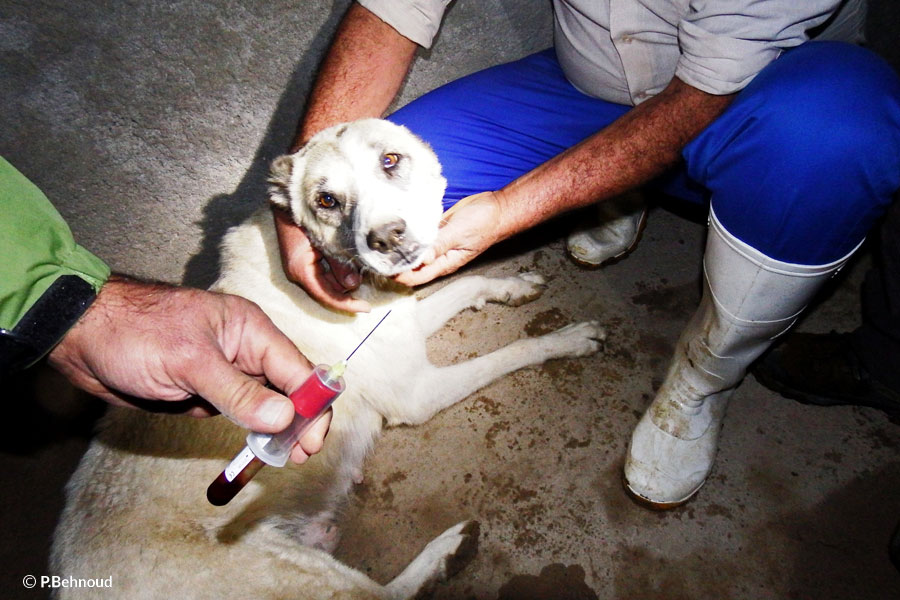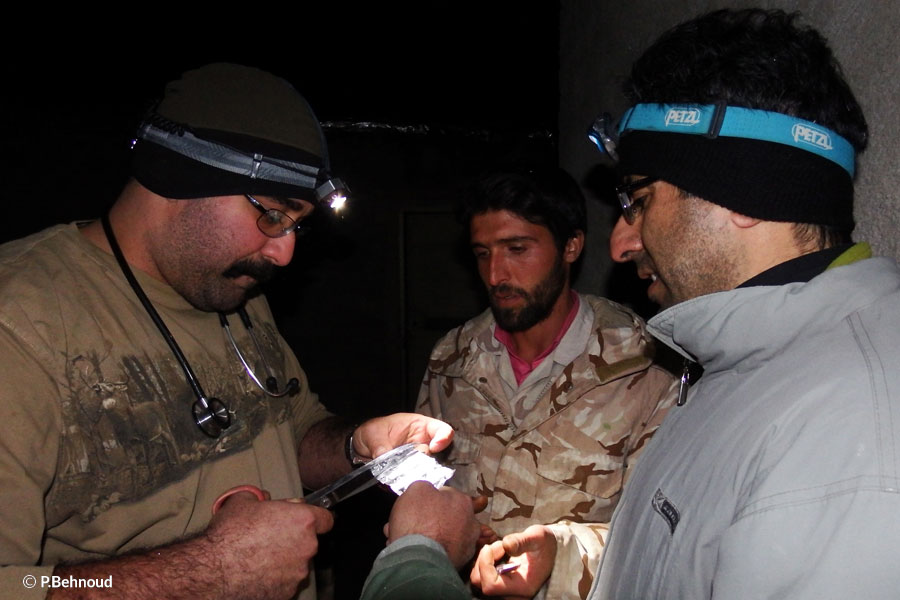Future4Leopards Foundation has conducted comprehensive surveys to understand the patterns of coexistence between people and predators. Our baseline surveys indicate that local people lose more domestic animals to disease than to predators. Accordingly, we need to assess the prevalence of infectious diseases among both local livestock and herd dogs present around Tandoureh National Park, with particular attention to foot and mouth disease (FMD) and peste des petits ruminants (PPR) for livestock and canine distemper for dogs.
In partnership with the Dargaz veterinary network and the University of Tehran’s Faculty of Veterinary Medicine, a team of university students and trained local vets has been engaged to investigate the prevalence of diseases. (Dargaz is the capital of a county of the same name in which Tandoureh National Park is partly located.) On the basis of blood sampling and lab analysis, treatment and vaccination regimes are proposed and implemented in close partnership with local stakeholders. Also, in partnership with local vets, health check and disease control programs for local livestock are established.
Equally important, we have found that inadequate veterinary services due to a lack of necessary expertise is a major problem in the area, and that this has been responsible for a high rate of financial loss for local people due to misdiagnosis of disease in livestock and resulting incorrect treatment. Accordingly, in parallel with the program of disease assessment and control described above, we provide training for local vets to make them better qualified to prevent or diagnose, treat and report those infectious and contagious diseases present in local livestock which could be problematic for wildlife species.
Also, we engage with local shepherds by providing training courses to enable them to better prevent and diagnose the important diseases that are common among local stock. Our expectation is that this will benefit not only the condition of herd animals but also, as a result, the livelihoods of local people.


